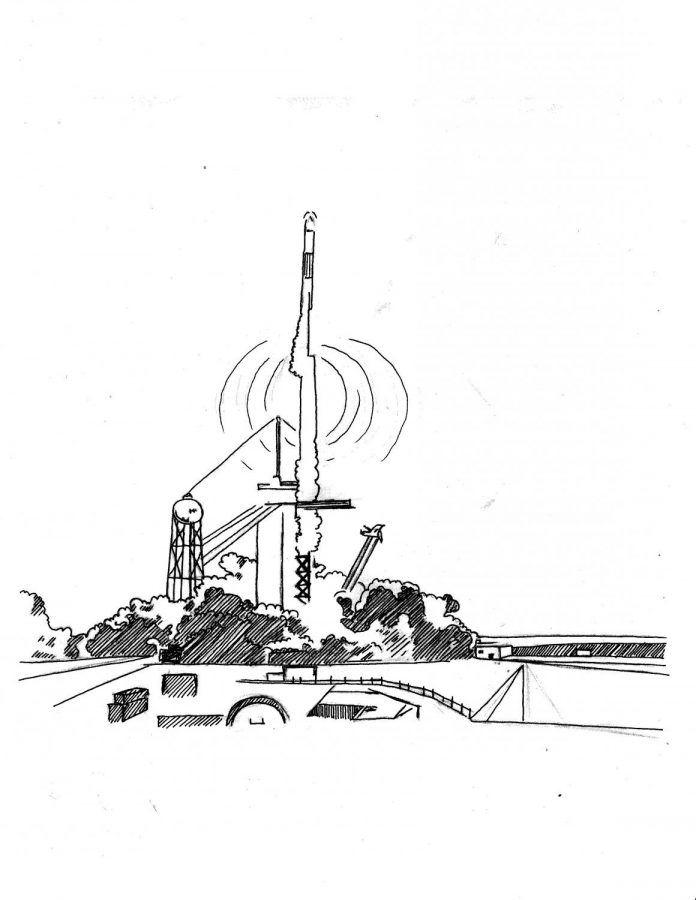Opinion: Bezos, Branson, Musk, and the final frontier of colonialism
On July 11, a rocket containing zero trained astronauts rose 53.5 miles into the sky. That day marked the first time that an untrained civilian crew had participated in spaceflight, but those that rose on the nose of Sir Richard Branson’s New Shepard and Bezos’s mission were hardly average people. The newest trend of billionaire backed spaceflight has launched a wave of “democratization of spaceflight” as dubbed by Jared Isaacman, backer and captain of the first civilian orbital mission, Inspiration 4. Despite the increased interest in space these missions have brought about, spaceflight is becoming more concerning than exciting.
Despite Isaacman’s assertions, calling the current wave of civilian spaceflight “democratization” is predicated on the falsehood that those running the companies have any sense of the lifestyle of the average person.
In a 2012 interview with BBC, Musk said that he was “quite confident that.. [SpaceX] could offer a round trip to Mars that the average person could afford… after they’ve made some savings.” How much did Musk believe that the average person could afford? “Land on Mars, a round-trip ticket – half a million dollars. It can be done,” said Musk. The median American household in 2019 had $5,300 in savings according to a MagnifyMoney study of the Federal Reserve and Federal Deposit Insurance Corp.
Another concern, often thought of as ridiculous and hypothetical, emerges when the current messaging of SpaceX and Blue Origin is examined with a closer eye. It is extremely possible that the sci-fi scenario of poverty-laden space mining is the goal. Blue Origin, founded by Jeff Bezos, as per their mission statement has a goal of “enabling a future where millions of people are living and working in space to benefit Earth. In order to preserve Earth, Blue Origin believes that humanity will need to expand, explore, find new energy and material resources, and move industries that stress Earth into space.”
Space has been and will most likely continue to be a high risk environment. With the outrage against Amazon’s exploitative labor practices in recent years, it is shocking that this further extension has not raised more questions, given the goal of exploiting resources in space. Although the vision of Blue Origin sending out waves of low-wage lithium miners is nowhere near guaranteed, the objective is still worrying.
Musk and Bezos are both following colonialist visions to benefit the elite based on the exploitation of the working class. As American CEOs of American companies, the colonialist attitude forms a dangerous combination. Those goals however, are in direct violation of the most important document in space regulation history— The 1963 UN Outer Space Treaty — which condemns these plans in its very first clause: “the exploration and use of outer space shall be carried out for the benefit and in the interests of all countries and shall be the province of all mankind.” The third clause, also violated, adds that “outer space is not subject to national appropriation by claim of sovereignty, by means of use or occupation, or by any other means.”
For me, it is not the current state of spaceflight that is of concern, but rather how it is being guided down the wrong path by those in control. While these companies have brought us smaller and cheaper satellites, reusable rockets, and advancement unfettered by regulation, the picture painted of these billionaires as visionaries of interplanetary human civilization is a manufactured marketing stunt bought into by techies and space enthusiasts alike.












